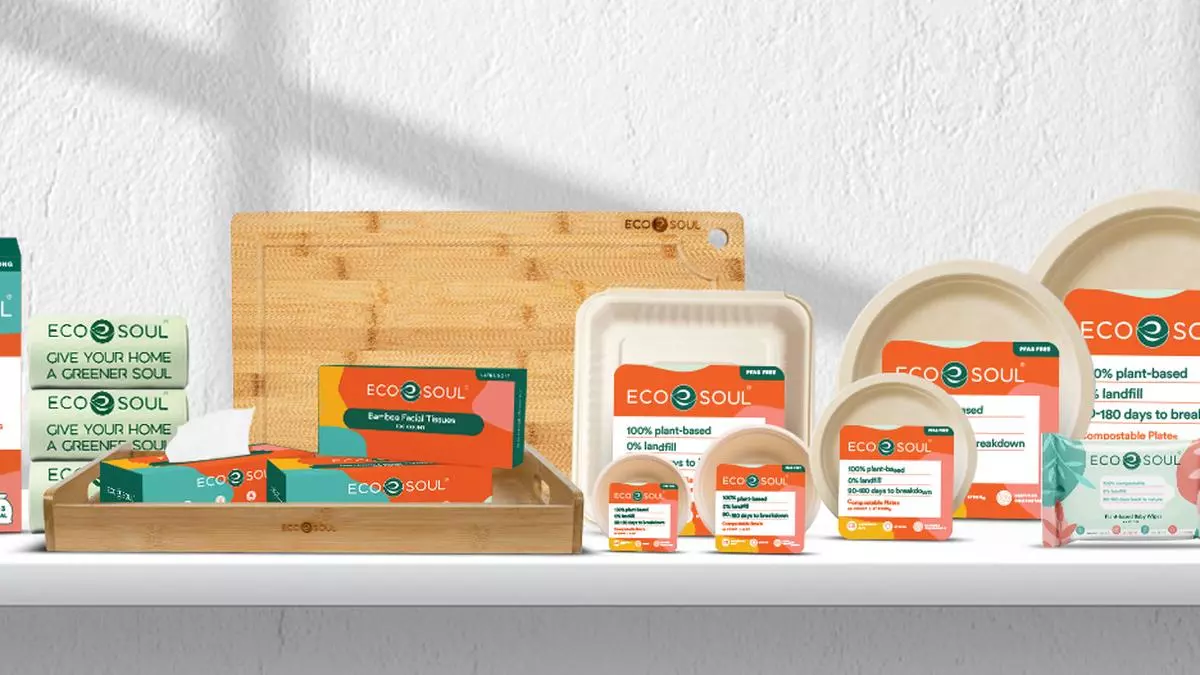Revolution in sustainability will be more powerful than in IT, says Ecosoul Home co-founder
A “revolution in sustainability” will be more powerful that IT revolution as the people who will get jobs are those in rural areas such as Shivamogga and Tumakuru in Karnataka, Muzzafarpur in Uttar Pradesh and Bhilai in Chhattisgarh, says Rahul Singh, Co-founder, EcoSoul Home, which produces sustainable and eco-friendly products.
“These are the places where the jobs will be created and the jobs will be created for the people who don’t have very high skill sets, who are not educated in Indian Institute of Technology (IITs) and Indian Institute of Management (IIMs). These will be jobs created for the people in the real Bharat,” he told businessline in an online interaction.
Rahul Singh, Co-founder, EcoSoul Home
EcoSoul produces a variety of eco-friendly and sustainable range of products such as kitchenware, tableware, and compostable bags totally from agro-wastes. They are manufactured using raw refuse materials such as dried leaves and waste bamboo, thereby preserving the ecosystem.
Production in rural areas
The company, whose products are produced in such rural areas, adds a lot of value in creating jobs and empowerment opportunities in these places. The company is creating opportunities in that part of India where nobody’s thinking about, he said.
When the Information Technology (IT) revolution happened, IITs and IIMs and computer science graduates benefitted. Cities such as Bengaluru, Mumbai, Delhi, Gurugram, Pune and Hyderabad benefited, he said.
Ecosoul, a venture capital-funded firm, has its commercial values but it cares about how such values are executed.
“It’s not just about having sustainable products. The company is not just about product and sales? We invest a lot in our communities.,” he said.
3 things that firm cares
At Ecosoul, 70 per cent of the employees are women of its 400 in India. 3At the company’s Shivamogga facility in Karnataka, all the 85 working there are women. The start-up, founded in 2020, takes up such issues seriously and its Managing Director is a woman.
Ecosoul cares about three things – first is engaging women, second is empowering them and the third is 80 per cent of its employees are rural-based.
The e-commerce start-up basically uses less than half a dozen raw materials to manufacture its products. They are areca palm leaf, bagasse, straw and corn starch. The company produces 43 products and has 1,800 stock-keeping units, Singh said.
At least 75 per cent of its products are produced in India, while another 10-15 per cent is manufactured in Vietnam and the rest in China. Besides India, the company is present in the US, Canada, Mexico, UK, Germany, UAE, Oman, Qatar, Bahrain, Saudi Arabia, China and Vietnam.
Making from agro-wastes
All its plates and bowls made out of areca palm leaf, an agro waste, are exported as the product has got tremendous reception in countries such as the US, Canada and UK.
Initially, the plates and bowls were produced in growers’ backyard with one to three machines. In order to make the product export-ready, Ecosoul set up a large unit with 30 machines at Tumakuru in Karnataka.
“We had operated it for almost a year-and-a-half when a lot of farm organisations came to use and sought help to put up similar units,” the Ecosoul co-founder said.
This led to the setting up of the Shivamogga facility and today, the company operates one of the largest palm leaf ecosystems in the world. Some 28 farmer producer organisations across 28 districts in Karnataka supply to Ecosoul.
The entire areca palm leaf procurement is in Karnataka, which accounts for 78 per cent of the production in the world and all of it is exported On the other hand, Ecosoul’s entire bagasse-based production takes place in Uttar Pradesh sugarcane belt.
7 captive units
The company sells 2 per cent of its products within the country and exports the remaining 98 per cent. India, thus, is the sourcing hub for all the importing nations.
Overall, the company has seven captive units that are owned by it. But Ecosoul works with over 50 contract manufacturers in India spread across Karnataka, Uttar Pradesh, North-East, Bengal and Chhattisgarh. The company has been working with them since 2020.
Ecosoul, which sells ₹600 crore worth of goods annually, gets very close to the source of raw material to set up its manufacturing unit. Being close to the source of production reduces the company’s carbon footprint, cost structure and thus, the savings are passed on to its customers, he said.
Apart from plates and bowls, Ecosoul makes spoons and trays from areca palm leaves. From bagasse, it produces kitchenware such as plates, bowls, meal trays for restaurants besides clam shells and take out containers.
The company also produces paper products which are 100 per cent tree-free. These papers are made of either bamboo or bagasse. “So we make toilet paper, kitchen towel rolls, facial tissues, napkins without any wood pulp,” Singh said.
Claiming carbon credits
Besides, it also has a range of baby care products and bamboo-based durable products such as drawers, trays, spatulas and cutting boards.
The company also does a lot of corn starch based products such as cutleries and straws besides reusable bags.
Ecosoul claims carbon credits in Europe for some of its products, particularly those it produces at its units. All the products are fully compostable – they go back to nature and become part of the soil ecosystem – and are certified by global agencies.
“One of our major decisions is that we sell in India what we sell in Europe and the US. It is exactly the same product and not any separate set or cheaper version,” Singh said.
The company has been funded by venture capital funds such as Accel, Singh Capital Partners, Tharsio and Prashwa investment.
